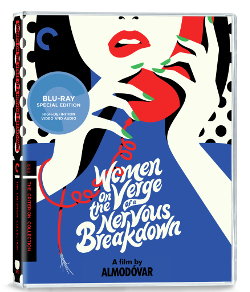
Women on the Verge of a Nervous Breakdown
Perhaps you stumbled onto the acclaimed, queer mind of Spanish auteur Pedro Almodovar via his latest work, 2016's "Julieta." Or maybe it was his homoerotic melodrama, which involved a gay filmmaker, said filmmaker's trans sister and a stalker in 1987's "Law of Desire." Or was it the film that earned Penelope Cruz an Oscar nod in 2006, "Volver"? In any case, Almodovar's Hollywood profile got a giant boost in 1988, with "Women on the Verge of a Nervous Breakdown," the out director's defining, Oscar-nominated black comedy. The campy caper centers on a high-profile actress, Pepa (Carmen Maura), who finds herself saddled with her lady friend's misadventure – sleeping with terrorists (typical) – while trying to sort out her own man problems. Pepa's issue is her womanizing boyfriend Ivan, responsible for triggering her epic meltdown. How's this for inspiring: She sets fire to their bed and, in another fit of nostalgic rage, hurls a record out the window like the kind of badass, heartbroken heroine we so love. Almodovar's screwball soap opera shakes out like an acid trip, as its unhinged hijinks are amusingly heightened, while edgy thriller-like camera effects break the comedy-genre mold. And thanks to the Criterion Collection, the film's kitschy '80s-era color scheme pops with even greater vibrancy. The restored version of Almodovar's splendid crossover triumph includes new interviews with Maura, who discusses her recurring acting roles in Almodovar's films, and the director himself, musing on the feature's bold fashion choices and how the movie came to characterize the first decade of his directorial career.
Moonlight
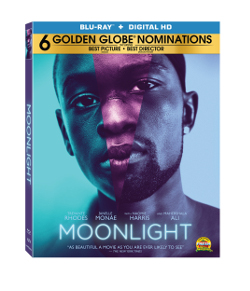
This year belongs to "Moonlight," even if confused Oscar presenter Faye Dunaway wanted us to think otherwise. Writer-director Barry Jenkins' tender time lapse through three significant periods of lead character Chiron's Miami-based life explored identity with the poetic ambiance of a Terrence Malick film, and Oscar voters took notice. "Moonlight" rightly won three statues in February, including Best Adapted Screenplay, which went to Jenkins and Tarell Alvin McCraney, who wrote the autobiographical source material; Best Supporting Actor (Mahershala Ali); and the coveted Best Picture award. The Oscars weren't wrong, for once (remember 2006, when "Crash" somehow triumphed over "Brokeback Mountain"? remember "Crash" at all?): "Moonlight" is a raw, harrowing achievement in storytelling and cinematography, which achieves a dreamlike resonance. The drama is marked by its earnest portrayal of the black and queer experience, and the people who make being ourselves that much easier. For Chiron, who's essentially motherless, his rock is a charismatic and open-minded drug dealer named Juan, played against type with father-figure warmth by Ali. "I got you," Juan assures in one of the film's finer scenes, as a weary Chiron takes a metaphorical swim. Later, the terrific Trevante Rhodes, playing adult Chiron, has a major breakthrough thanks to Juan, the person who helped nurture his understanding of himself when no one else – not his self-involved mother (a hauntingly good Naomie Harris) or friends at school – would. Jenkins talks about casting local non-actors to cultivate the film's relatable authenticity during one of the bonus features, which also include a Jenkins commentary, interviews with the noteworthy ensemble and a piece focused on the film's stunning music.

Florence Foster Jenkins
What's a "singer" to do if she can't sing? Sing anyway. In director Stephen Frears' "Florence Foster Jenkins," those ear-splitting shrieks belong to the titular real-life warbler (played and sung by our favorite "overrated" actress Meryl Streep), whose heart is in the right place – she just wants to help change the lives of World War II soldiers – even if her notes are not. "It is true that a lot of singers my age are on the decline, but I seem to just get better and better," Florence boasts to her vocal coach (David Haig), unironically, as her earnest husband and manager, St. Clair Bayfield (Hugh Grant), remains stone-faced and her new piano accompanist, Cosme McMoon (a hysterically expressive Simon Helberg), looks on in horror. People pretend to love Florence, or they're AARP card-carriers and are unaffected by her squawking howl. Undue praise leads Florence to believe she's ready for Carnegie Hall, which means a bigger crowd, actual music critics and, oh no, the possibility that Florence will now discover that her voice is not what she thinks it is. As if this is news to you, Madame Streep owns that screen like only a diva can, splitting sides with a mangled version of Mozart's "Queen of the Night" aria and, in a touching coda, moving you with a sweetly delusional dream sequence. Featurettes are bountiful, but it's the ever-delightful Streep's sit-down with costume designer William Ivey Long that stands out amid a look back at Florence's real-life songs and a history of Carnegie Hall.
Also Out
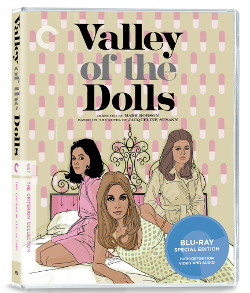
Valley of the Dolls
"Valley of the Dolls" first threw its drug-infested self onto American audiences in 1967. Had it been 2017, just think of all would-be meme-worthy moments that could be gleaned from failed-actress-turned-author Jacqueline Susann's sordid source material, which was a book before becoming one of the camp genre's greatest guilty pleasures. The spectacularly bad Patty Duke-starring frolic is a campy cocktail of high-glam Hollywood expose, clashing genres, porn, melodrama and absurdly hysterical one-liners ("Mother, I know I don't have any talent! And I know all I have is a body, and I am doing my bust exercises!"). Said frivolity endures now that Criterion has resurrected director Mark Robson's opulent awfulness for a shiny Blu-ray edition. Included among the plentiful extras are 2001's dishy TV program "Hollywood Backstories," with behind-the-scenes footage of an aged Judy Garland performing her last song for a film.
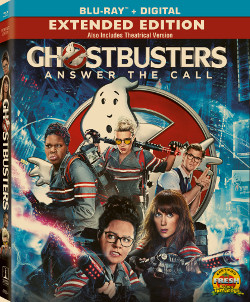
Ghostbusters
The same people who probably put Donald Trump in office tore into the all-female "Ghostbusters" even before its release, which the new take on the 1984 classic derides not just with an "ain't no bitches gonna hunt no ghosts" joke but simply by existing. Director Paul Feig ("Bridesmaids," "Spy"), who we love because he subverts onscreen gender norms and lets women be the badasses they are, enlists a comedic team so dreamy they should probably just remake every all male-dominated '80s flick: Melissa McCarthy, Kristen Wiig, Leslie Jones and Kate McKinnon, whose character is probably queer. Their secretary? A nerdy-hot Chris Hemsworth. Even without Hemsworth, who's hysterical by the way, "Ghostbusters" is a fun, fresh outing for a new generation of thrill-seeking kids and Trump-era feminists. Among the extras: a fascinating visual effects comparison piece.
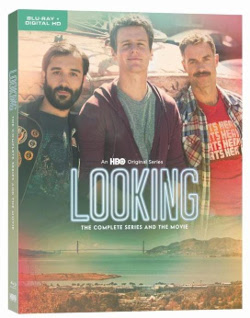
Looking: The Complete Series + Movie
For years, we called on Hollywood to develop a TV series that reflected the "real lives" of gays – so, the complete opposite of "Fire Island" – and then, in 2014, we got it. But we didn't watch it, and now it's gone. This is the sad fate of HBO's greatly underappreciated and queer-zeitgeist dramedy "Looking," about the idiosyncratic lives of an everyday group of gay men living in San Francisco. Jonathan Groff's Patrick Murray took centerstage as a neurotic preppie, but it was the show's understatedness that qualifies it – even as writers approached touchy and important topics including serodiscordant couples and PrEP – as one of the most extraordinarily ordinary portrayals of queer life. The gone-too-soon series at least got a respectable final bow with a full-length, wedding-centric movie that honored "Looking" and its characters with sophisticated storytelling and a poignant last shot. Cast episode commentaries are included.
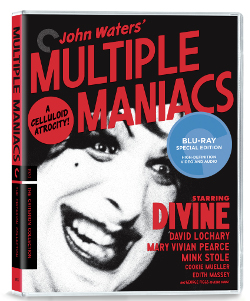
Multiple Maniacs
Even John Waters is appalled by "Multiple Maniacs" – his own movie, mind you. During a 2016 commentary for a newly Criterion-restored version of the black comedy, Waters is his typically amusing, filterless self as he discusses a wide-range of tidbits regarding his 1970 black-and-white film, an exploitative DIY feature produced on a shoestring budget and filmed with a chummy group of self-proclaimed "freaks." Late drag icon Divine leads the shenanigans with a fetish show called "The Cavalcade of Perversion," which spotlights "two actual queers kissing each other like lovers on the lips" and a resident "puke eater." That's just child's play, because then Divine robs and murders her weirded-out patrons while also partaking in rosary buttplay at a Catholic church with Waters film-mainstay Mink Stole. The shockfest was, essentially, the beginning of a decades-long legacy for one of cinema's filthiest forefathers. Stole, along with other "Multiple Maniacs" actors, speak at length about working with Divine and Waters on a movie that Waters says he's glad his mother never saw.
As editor of Q Syndicate, the international LGBT wire service, Chris Azzopardi has interviewed a multitude of superstars, including Meryl Streep, Mariah Carey and Beyonce. Reach him via his website at http://www.chris-azzopardi.com and on Twitter (@chrisazzopardi).











